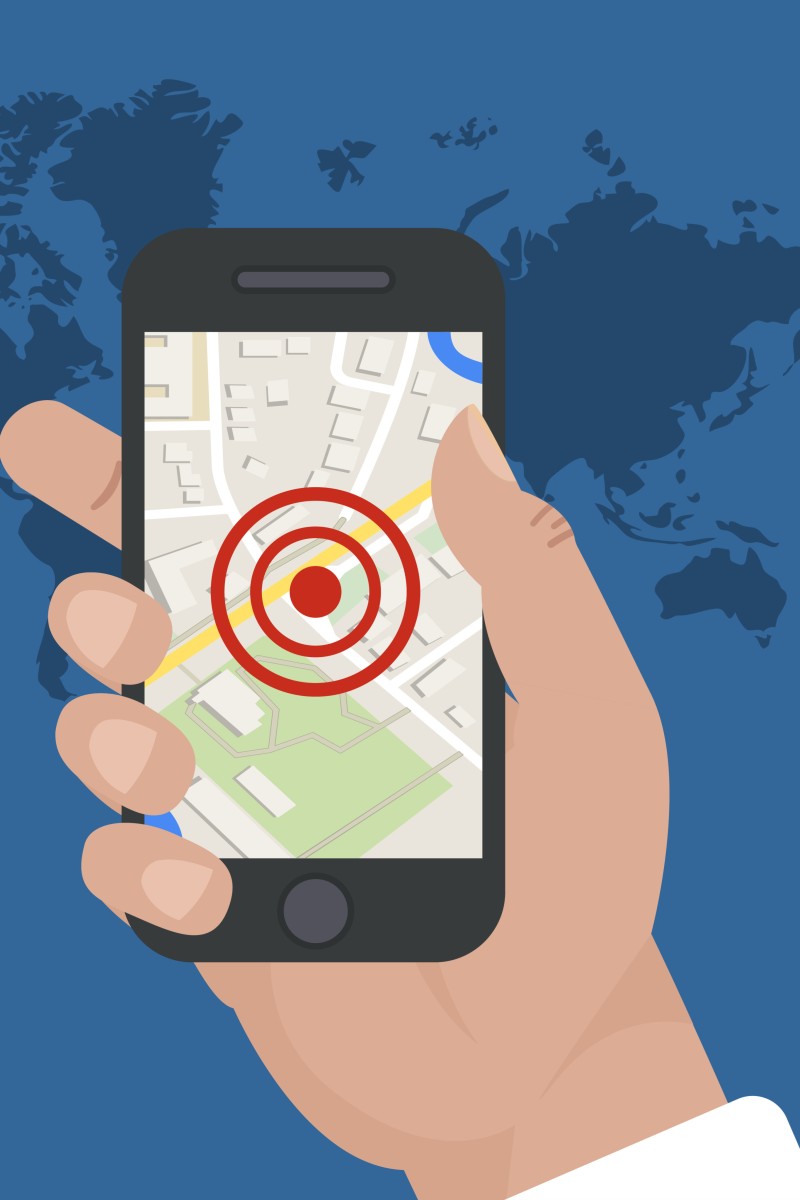
Face Off: Should parents use devices to track where their children are at all times?
- Each week, two readers debate a hot topic in a showdown that doesn’t necessarily reflect their personal viewpoints
- This week, they discuss whether parents should make use of technology to ensure they know the whereabouts of their children
 Should parents use devices to track where their children are at all times? Photo: Shutterstock
Should parents use devices to track where their children are at all times? Photo: Shutterstock If you are interested in joining future Face Off debates, fill out this form to submit your application.
For: Sophia Ling, 12, German Swiss International School
As technology advances, it has become increasingly common for parents to track their children’s devices. While many argue that GPS tracking infringes upon children’s privacy and autonomy, I believe the tool should be used.
With GPS tracking, parents can guarantee their children’s safety without becoming helicopter parents. Rather than resorting to constant texts to keep tabs on their children’s whereabouts, parents can use GPS tracking to periodically check their location. This allows for a balanced approach that respects their privacy while ensuring their safety.
Should there be restrictions on parents posting pictures of their children online?
By tracking children’s locations, parents can quickly respond to emergencies. Emergencies are unpredictable, and when they occur, every second counts. This is especially true in the case of young children, and location trackers provide an immediate advantage. In the case of a medical emergency, knowing the exact location allows parents to get to the scene faster, possibly making a crucial difference in the outcome.
Parents tend to get very worried and concerned when their children do not answer calls. Tracking their location can alleviate some of these anxieties as parents can rest assured knowing their children have reached their intended destinations.
The idea of tracking children’s device locations may initially seem at odds with promoting independence. However, when used thoughtfully, GPS tracking can help build a trusting relationship. Think of it this way: When parents start tracking their children’s movements, they also set the stage for open communication about their activities and whereabouts. Maybe their child is going to a friend’s house. Knowing their location helps parents feel secure, but it also gives children the freedom to enjoy their time without constant check-ins.
The goal of tracking isn’t to create a surveillance state within the family but to foster a sense of mutual respect. As children consistently demonstrate that they can be trusted to go where they say they are going, they earn more freedom. For adults, this can be seen as the beginning of a new phase in the parent-child relationship – one built on trust.
Against: Valerie Shek, 13, Independent Schools Foundation Academy
As we step into the digital age, technology has become an integral part of our daily lives. However, one topic that has sparked heated debate is whether parents should track their children’s devices.
Yes, tracking devices can help ensure the safety of our children, but do the benefits outweigh the disadvantages? It is essential to foster a healthy relationship, and allowing parents to track their child’s device will not contribute. It can have a detrimental effect on the trust between parents and children.
Trust is a two-way street: when kids know their parents trust them, they are more likely to feel secure. Furthermore, they are more likely to develop healthy habits, self-esteem and confidence.
Should parents be in charge of their child’s red packet money?
While parents may think that tracking their children can help keep them safe, it increases the risk of juvenile delinquency because of parental trust issues.
According to researchers in Switzerland, young people with low interpersonal trust are more likely to commit juvenile offences. Moreover, when a relationship lacks trust, it allows the potential to develop different types of negative attributes. Over time, it can lead to more significant problems, such as abuse and depression.
Parents, is this what you want for your children? With all the dangers in today’s world, I am sure parents only want to keep their children safe and know where they are. But instead of intruding and breaching trust, parents should work on building healthy communication skills.
Though it may take time for this to develop, building trust can be more beneficial than tracking devices in the long run.
Children need the opportunity to explore and learn from their own mistakes. Constantly monitoring and limiting them from doing different things hinders their growth. Furthermore, it can foster self-confidence, resilience, and problem-solving abilities. By continually monitoring children, they may become overly reliant on parental guidance and approval, hindering their ability to think independently.
Parents must strike a balance between safety and privacy. They can create a better environment for their children to grow and develop by fostering independence and trust.
